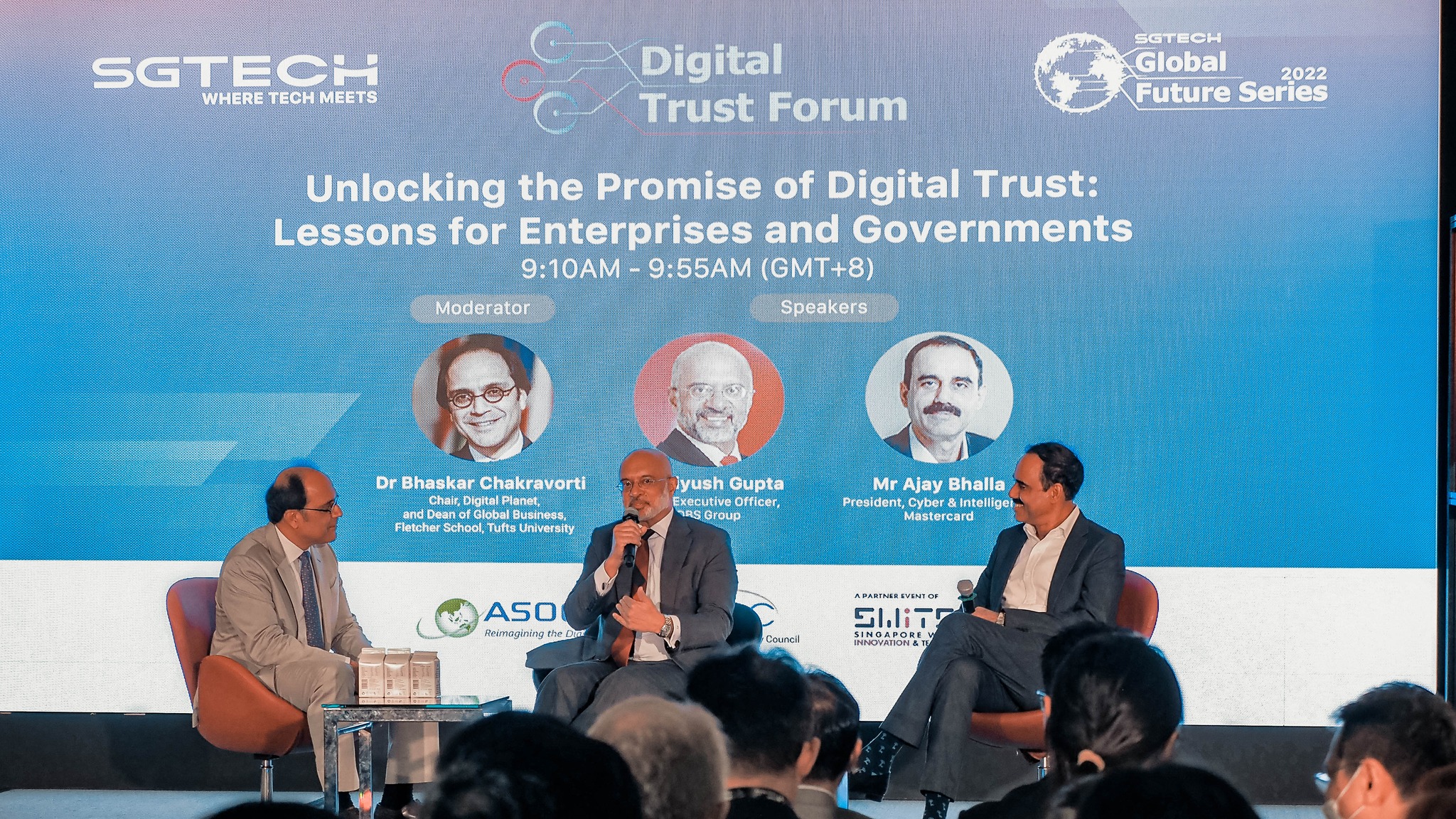When DBS Bank first rolled out a software token for its digital banking services a few years ago, it made things more convenient by allowing users to log in without carrying a hardware token.
Yet, the bank encountered a new customer issue – when users did not have to manually type in a password, they started wondering if a transaction they set up had indeed gone through.
So instead of a seamless process, DBS introduced friction - when a user made a transfer, an animation of a paper plane went from left to right of a screen to show that funds had indeed been transferred.
Ironically, this added friction gave users reassurance that a seamless experience did not, said Piyush Gupta, group chief executive officer of DBS Bank.
He made the point at a panel discussion at the SGTech Digital Trust Forum to show that user preferences and trust are sometimes difficult for organisations to grasp without fully understanding the user experience.
Just as important, he noted, were changing expectations. When he was working at Citi 20 years ago, he recalled, people were worried that the introduction of biometrics for authentication meant they could get their fingers chopped off by robbers.
“But now people are a lot more comfortable with biometrics,” he quipped.
To gain trust, he listed a great customer experience, authenticity, security, privacy, appropriateness (of the data used) and fairness (for example when a consumer is phished) as key tenets in a digital future.
Gupta was joined in a panel discussion by Dr Bhaskar Chakravorti, the dean of global business at The Fletcher School at Tufts University, and Ajay Bhalla, president for Cyber & Intelligence at Mastercard.
The panel was part of a day-long SGTech Digital Trust Forum that included industry leading discussions with 30 esteemed leaders of industry.
One question that came up often was the definition of trust. It means different things to different people, as shown by the varying levels of public acceptance of disease tracking across countries during the pandemic, pointed out Dr Chakravorti.
“We are still at the beginning for the solution space (in digital trust),” he added. “Technology will need frameworks, policy and more… governments need to do that, but they need industry help to be participatory because things are moving so fast.”
Even while trust is critical for any business today, said Mastercard’s Bhalla, it is becoming challenging for many organisations in the digital realm.
“In the physical world, you can see the device or the card as a medium for exchange, but in the digital world, you don’t see who’s on the other side,” he noted. “You need digital trust to be built up.”
He said it was important to keep ahead of fraudsters, for example, with Mastercard’s quantum resistant cards that are said to be protected from attacks from quantum computers which have the processing power to unscramble most of today’s encrypted data.
The idea of trust changes over time, the audience heard. Even with the advent of distributed ledger technology, and the resultant decentralisation that many believe will move trust away from central entities like banks and governments, people eventually still gravitate towards trusted nodes, said Gupta.
He pointed to DBS’ cryptocurrency exchange, which offer bank-standard custody to other cryptocurrency exchanges, many of which face cyberattacks so often.
This showed that trust is placed on entities that have invested in building that up over time, he added. “At the heart of digitalisation is trust.”




Tell us about your thoughtsWrite message